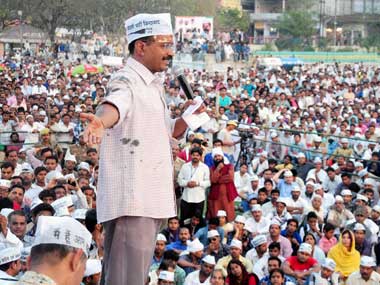If he already hasn’t, Arvind Kejriwal, the new CM of Delhi, should write a thank you note to Najeeb Jung, the Lt Governor of Delhi. It should touch upon the things he didn’t do during President’s Rule, which would have shown that during that phase there was little governance. If at all, he only seemed to have allowed the state to run with a business-as-usual attitude. This could amount to either inaction or ineptitude. The spectacular outcome of Delhi’s elections has been analysed and even overanalysed by looking for meaning in every statistic that has been thrown up in exit polls. However, one reason, of citizens being miffed at poor governance, has been missed. If only the Bharatiya Janata Party had used the months since President’s Rule was imposed to govern Delhi better, perhaps the results may not have been so one-sided. It may have made the mistake of delaying the elections but what’s worse is that it failed utterly, since it came to power, to use President’s Rule to prime the engine, so to say, and register good wins. Adhering to this ‘only routine’ attitude, the Lt Governor helped contrast what was seen and felt in the AAP’s 49-day rule. [caption id=“attachment_2097935” align=“alignleft” width=“380”]  Delhi CM-designate Arvind Kejriwal. PTI[/caption] The Lt Governor’s line of authority, either during President’s Rule or otherwise, flows from the Union Home Ministry which handles the police of Delhi. Since the Nirbhaya rape, the issue of the police not being under the state’s control was discussed in the public domain, including by Sheila Dikshit, when she was chief minister. Much earlier, BJP’s chief minister Sahib Singh Verma too had sought its transfer to the state. During its much-talked about 49 days, the AAP government had taken up the issue when Kejriwal went on his famous dharna to make the law enforcement agency accountable to him. That, and the futile bid to enact the Jan Lokpal Bill, were the headline moves but a whole lot of small administrative steps he had taken had impacted the daily lives of Delhi residents. This could have been continued. Apparently because they were AAP’s programme, they were scuttled. People who had their lives impacted by petty corruption had their own narratives of how relief came their way within days of the new government coming to be. The announcement by Kejriwal during his last government, that he would respond if the corrupt were caught on people’s cell phone cameras had put the fear of god in the corrupt. What appeared to be a small thing to those involved in big-ticket corruption was sapping the poor. There was no reason why that vigilance could not have continued. To the common man, petty corruption is a daily affair when the traffic police seek their cut for no reason, when the hawker has to pay the rentier who is either the local politician or the goon or both. The premium for early despatch of a water tanker, and the proliferation of middlemen at the road transport office had disappeared. These are visible features of a government either when present or absent. The public is convinced that the proceeds of sleaze flow upwards. When Manish Sisodia told a TV channel that “from tomorrow corruption would disappear” by the mere fact of an AAP victory, never mind its scale, he perhaps wasn’t exaggerating. The Hindustan Times yesterday (13 February) reported how “governance was back” in Sangam Vihar: a police constable who normally stood watch only to collect his hafta from petty businessmen did not stretch his palm. The worm’s eye has its own perspectives that’s different from a top-down perspectives. The residents had “already started noticing positive changes in their neighbourhood”. It was “similar to the impact witnessed during AAP leader Arvind Kejriwal’s 49-day rule, residents say…Day 1 started without them having to pay money to government officials”. Perhaps there are several stories across Delhi but count on the media to ignore them. Failure to carry forward the small but useful and effective steps showed how the government under President’s Rule was uncaring about the people’s concerns. It is a manifestation of the state’s failure. The spell was not a phase where the Lt Governor only had to stage a holding operation. He or she is responsible for the conduct of the affairs of the state when the legislature is in animated suspension.
Failure to carry forward the small but useful and effective steps showed how the government under the President’s Rule was uncaring about the people’s concerns. It is a manifestation of the state’s failure.
Advertisement
End of Article
Written by Mahesh Vijapurkar
Mahesh Vijapurkar likes to take a worm’s eye-view of issues – that is, from the common man’s perspective. He was a journalist with The Indian Express and then The Hindu and now potters around with human development and urban issues. see more


)
)
)
)
)
)
)
)
)



